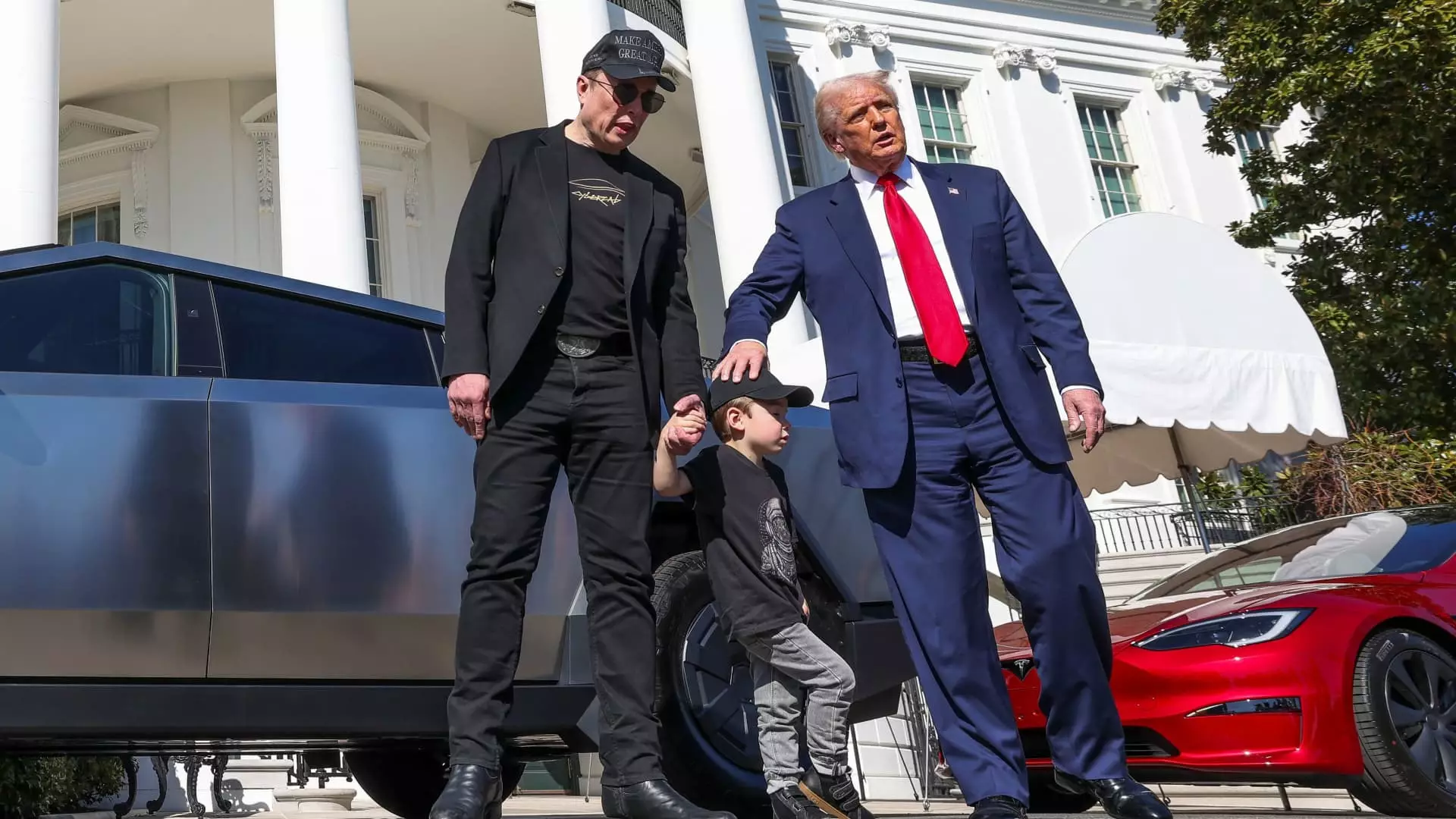Recent findings from a Morgan Stanley survey reveal that a staggering 85% of respondents believe Elon Musk’s foray into the political arena is a burden on Tesla Inc. This might seem like a mere statistic, but delving deeper into what these figures represent unveils a troubling narrative for both investors and consumers. The survey, while not without its limitations—drawn from a non-random sample of just 245 individuals—reveals a troubling sentiment: the overwhelming majority believes Musk’s political engagement has had a negative impact on Tesla’s core business fundamentals.
Over the past year, we have watched as Musk, the brash billionaire and CEO of Tesla, has catapulted himself into controversial political roles, particularly following his support for President Donald Trump. His involvement with government efficiency initiatives—gathering intense scrutiny from various stakeholders—has raised eyebrows. More than ever, it appears that Musk’s focus on political maneuvering has shifted away from the urgent business of innovation and customer satisfaction that originally put Tesla on the map.
Stock Prices Reflect Investor Sentiment
Tesla’s stock has seen a considerable decline, plummeting almost 40% over the past year. This drastic shift is not just a reflection of market volatility; it is indicative of growing investor anxiety regarding Musk’s increasingly erratic political behavior. The Morgan Stanley survey reported that 45% of respondents attribute a “negative” effect of Musk’s political enterprises on the company’s performance. A further 40% described these actions as “extremely negative.” When the perceptions of investors begin to tilt so overwhelmingly against leadership, the ramifications can be severe.
The experience of analysts, resonating with the pessimism voiced by investors, foresees a bleak upcoming year in terms of deliveries. A sizable 59% predict a reduction in Tesla’s car deliveries in 2025, with a significant portion expecting declines surpassing 10%. Such forecasts suggest that the brand’s desirability and operational effectiveness are at risk of being overshadowed by Musk’s political gambits. These shifts in consumer sentiment, fueled by both internal and external factors, can have a domino effect on Tesla’s stock and long-term strategy.
The Political Circus—A Distraction from Innovation
Musk’s recent trajectory appears fraught with distraction as he balances his corporate responsibilities with his evolving political identity. This dichotomy raises challenging questions: is he losing sight of his fundamental responsibilities as Tesla’s leader? Critics have pointed out that the expedited nature of his political initiatives often smacks of haphazardness, undermining confidence among Tesla’s core customer base. The tragedy here is not only that a clear path toward innovation is obscured, but also that Musk’s actions may inadvertently alienate loyal customers who once viewed Tesla as the premium, cutting-edge option in electric vehicles.
While Musk’s support from Trump remains a significant talking point, reactions from Trump’s advisers paint a mixed picture. Criticism of Musk’s handling of political roles has emerged, with dire warnings about the risks associated with his leadership style. In a convoluted political landscape, Musk’s tendency to promote extreme measures, such as addressing vandalism at dealerships as “domestic terrorism,” raises concerns about the stability and image of the brand.
Looking Towards the Future — Will Tesla Thrive or Survive?
In light of the recent turmoil, 45% of survey respondents remain surprisingly optimistic, predicting that Tesla shares will climb at least 11% by year-end. Yet, this optimism feels precarious. The remaining 55% expect further declines or stagnation, revealing underlying tensions concerning the future of a company once overflowing with promise.
As the world watches Tesla navigate through these tumultuous waters, one cannot help but wonder: will the paradigm of Elon Musk as a larger-than-life entrepreneur withstand the scrutiny of shareholders stood in uncertainty? The stakes have never been so high, and if Musk fails to realign his focus on the business at hand, it may not only impact investor confidence but also invite broader societal concerns about the collision of capitalism with political ambition. It’s time for Musk to step back into the realm of innovation rather than remain ensnared in the quagmire of political crisis.

